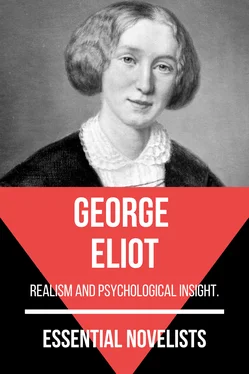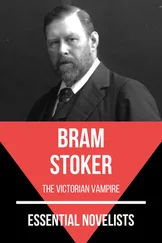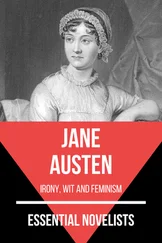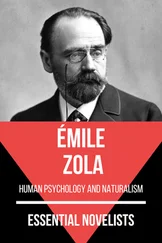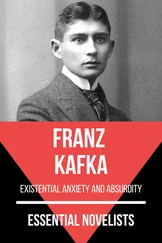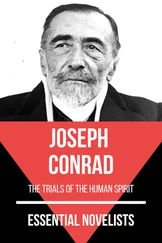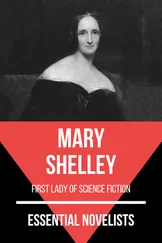"Then that is a reason for more practice. Every lady ought to be a perfect horsewoman, that she may accompany her husband."
"You see how widely we differ, Sir James. I have made up my mind that I ought not to be a perfect horsewoman, and so I should never correspond to your pattern of a lady." Dorothea looked straight before her, and spoke with cold brusquerie, very much with the air of a handsome boy, in amusing contrast with the solicitous amiability of her admirer.
"I should like to know your reasons for this cruel resolution. It is not possible that you should think horsemanship wrong."
"It is quite possible that I should think it wrong for me."
"Oh, why?" said Sir James, in a tender tone of remonstrance.
Mr. Casaubon had come up to the table, teacup in hand, and was listening.
"We must not inquire too curiously into motives," he interposed, in his measured way. "Miss Brooke knows that they are apt to become feeble in the utterance: the aroma is mixed with the grosser air. We must keep the germinating grain away from the light."
Dorothea colored with pleasure, and looked up gratefully to the speaker. Here was a man who could understand the higher inward life, and with whom there could be some spiritual communion; nay, who could illuminate principle with the widest knowledge: a man whose learning almost amounted to a proof of whatever he believed!
Dorothea's inferences may seem large; but really life could never have gone on at any period but for this liberal allowance of conclusions, which has facilitated marriage under the difficulties of civilization. Has any one ever pinched into its pilulous smallness the cobweb of pre-matrimonial acquaintanceship?
"Certainly," said good Sir James. "Miss Brooke shall not be urged to tell reasons she would rather be silent upon. I am sure her reasons would do her honor."
He was not in the least jealous of the interest with which Dorothea had looked up at Mr. Casaubon: it never occurred to him that a girl to whom he was meditating an offer of marriage could care for a dried bookworm towards fifty, except, indeed, in a religious sort of way, as for a clergyman of some distinction.
However, since Miss Brooke had become engaged in a conversation with Mr. Casaubon about the Vaudois clergy, Sir James betook himself to Celia, and talked to her about her sister; spoke of a house in town, and asked whether Miss Brooke disliked London. Away from her sister, Celia talked quite easily, and Sir James said to himself that the second Miss Brooke was certainly very agreeable as well as pretty, though not, as some people pretended, more clever and sensible than the elder sister. He felt that he had chosen the one who was in all respects the superior; and a man naturally likes to look forward to having the best. He would be the very Mawworm of bachelors who pretended not to expect it.
––––––––
"SAY, GODDESS, WHAT ensued, when Raphael,
The affable archangel . . .
Eve
The story heard attentive, and was filled
With admiration, and deep muse, to hear
Of things so high and strange."
—Paradise Lost, B. vii.
––––––––

IF IT HAD REALLY OCCURRED to Mr. Casaubon to think of Miss Brooke as a suitable wife for him, the reasons that might induce her to accept him were already planted in her mind, and by the evening of the next day the reasons had budded and bloomed. For they had had a long conversation in the morning, while Celia, who did not like the company of Mr. Casaubon's moles and sallowness, had escaped to the vicarage to play with the curate's ill-shod but merry children.
Dorothea by this time had looked deep into the ungauged reservoir of Mr. Casaubon's mind, seeing reflected there in vague labyrinthine extension every quality she herself brought; had opened much of her own experience to him, and had understood from him the scope of his great work, also of attractively labyrinthine extent. For he had been as instructive as Milton's "affable archangel;" and with something of the archangelic manner he told her how he had undertaken to show (what indeed had been attempted before, but not with that thoroughness, justice of comparison, and effectiveness of arrangement at which Mr. Casaubon aimed) that all the mythical systems or erratic mythical fragments in the world were corruptions of a tradition originally revealed. Having once mastered the true position and taken a firm footing there, the vast field of mythical constructions became intelligible, nay, luminous with the reflected light of correspondences. But to gather in this great harvest of truth was no light or speedy work. His notes already made a formidable range of volumes, but the crowning task would be to condense these voluminous still-accumulating results and bring them, like the earlier vintage of Hippocratic books, to fit a little shelf. In explaining this to Dorothea, Mr. Casaubon expressed himself nearly as he would have done to a fellow-student, for he had not two styles of talking at command: it is true that when he used a Greek or Latin phrase he always gave the English with scrupulous care, but he would probably have done this in any case. A learned provincial clergyman is accustomed to think of his acquaintances as of "lords, knyghtes, and other noble and worthi men, that conne Latyn but lytille."
Dorothea was altogether captivated by the wide embrace of this conception. Here was something beyond the shallows of ladies' school literature: here was a living Bossuet, whose work would reconcile complete knowledge with devoted piety; here was a modern Augustine who united the glories of doctor and saint.
The sanctity seemed no less clearly marked than the learning, for when Dorothea was impelled to open her mind on certain themes which she could speak of to no one whom she had before seen at Tipton, especially on the secondary importance of ecclesiastical forms and articles of belief compared with that spiritual religion, that submergence of self in communion with Divine perfection which seemed to her to be expressed in the best Christian books of widely distant ages, she found in Mr. Casaubon a listener who understood her at once, who could assure her of his own agreement with that view when duly tempered with wise conformity, and could mention historical examples before unknown to her.
"He thinks with me," said Dorothea to herself, "or rather, he thinks a whole world of which my thought is but a poor twopenny mirror. And his feelings too, his whole experience—what a lake compared with my little pool!"
Miss Brooke argued from words and dispositions not less unhesitatingly than other young ladies of her age. Signs are small measurable things, but interpretations are illimitable, and in girls of sweet, ardent nature, every sign is apt to conjure up wonder, hope, belief, vast as a sky, and colored by a diffused thimbleful of matter in the shape of knowledge. They are not always too grossly deceived; for Sinbad himself may have fallen by good-luck on a true description, and wrong reasoning sometimes lands poor mortals in right conclusions: starting a long way off the true point, and proceeding by loops and zigzags, we now and then arrive just where we ought to be. Because Miss Brooke was hasty in her trust, it is not therefore clear that Mr. Casaubon was unworthy of it.
He stayed a little longer than he had intended, on a slight pressure of invitation from Mr. Brooke, who offered no bait except his own documents on machine-breaking and rick-burning. Mr. Casaubon was called into the library to look at these in a heap, while his host picked up first one and then the other to read aloud from in a skipping and uncertain way, passing from one unfinished passage to another with a "Yes, now, but here!" and finally pushing them all aside to open the journal of his youthful Continental travels.
Читать дальше
